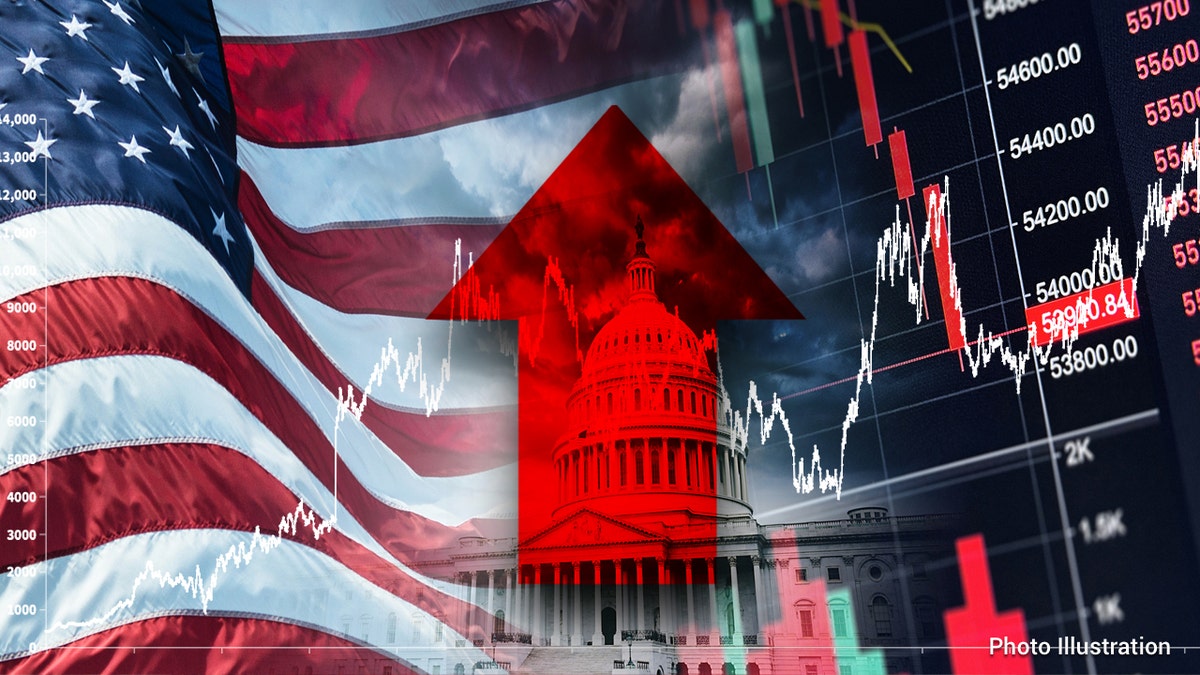Inflation data could 'continue to get worse': Investment expert
Kingsview Wealth Management Chief Investment Officer Scott Martin weighs in on the latest Fox News survey, which found that almost all voters are worried about inflation.
Kingsview Wealth Management Chief Investment Officer Scott Martin argued on Sunday that the condition of the U.S. economy is "terrible" as inflation reached a new 40-year high.
Martin, a FOX Business contributor, made the comment on "Fox News Live" reacting to the latest Fox News survey, which found that almost all voters are worried about inflation and that large numbers continue to rate the economy negatively with a majority expecting the situation to be worse next year.
Only 17% of respondents rated the economy positively, the lowest in nearly 10 years. Eighty-four percent said it is in only fair or poor shape. And a 52% majority thinks it will be worse next year. This is the first time in intermittent surveys going back to 1998 that over half have felt the economy will be worse a year from now.
Meanwhile, 52% have changed their summer travel plans because of gas prices, 70% have had to cut back on other spending to afford necessities, and 75% say inflation has caused them financial hardship -- up from 67% in December.
NYSE SENIOR MARKET STRATEGIST ON ‘BAD’ INFLATION DATA AND WHAT IT MEANS FOR FUTURE FED ACTION
Many fault the White House for the economic woes. Fifty-five percent say the administration has made the economy worse, and more voters blame Biden (31%) for gas prices than think Russia (20%) or oil companies (14%) are responsible.
Martin predicted that "you are going to see the polls continue to fall as some of the economic data, the inflation numbers continue to get worse."
Martin made the comment four days after it was revealed that inflation accelerated more than expected to a new four-decade high in June as the price of everyday necessities remains painfully high, exacerbating a financial strain for millions of Americans.
The Labor Department said Wednesday the consumer price index, a broad measure of the price for everyday goods, including gasoline, groceries and rents, rose 9.1% in June from a year ago. Prices jumped 1.3% in the one-month period from May. Those figures were both far higher than the 8.8% headline figure and 1% monthly gain forecast by Refinitiv economists.
The data marked the fastest pace of inflation since December 1981.
Price increases were extensive, suggesting that inflation may not be near its peak: Energy prices rose 7.5% in June from the previous month, and are up 41.6% from last year. Gasoline, on average, costs 59.9% more than it did one year ago and 11.2% more than it did in May. The food index, meanwhile, climbed 1% in June, as consumers paid more for items like cereal, chicken, milk and fresh vegetables.
Scorching hot inflation has created severe financial pressures for most U.S. households, which are forced to pay more everyday necessities like food, gasoline and rent. The burden is disproportionately borne by low-income Americans, whose already-stretched paychecks are heavily impacted by price fluctuations.

The consumer price index, a broad measure of the price for everyday goods, including gasoline, groceries and rents, rose 9.1% in June from a year ago, according to the Labor Department. (istock)
Martin described the economic situation as "terrible" on Sunday, "especially if you think about it on the consumer level, but also think about it on the producer level."
"Think about all of the costs, as far as gasoline, diesel fuel that go into selling the goods and delivering them if you’re a company out there, so it’s affecting everyone," he stressed.
Last week, it was also revealed that wholesale prices accelerated again in June as inflation seeps throughout every part of the U.S. economy, squeezing businesses and American households in the form of higher prices for most necessities.
The Labor Department said Thursday that its producer price index (PPI), which measures inflation at the wholesale level before it reaches consumers, climbed 11.3% in June from the previous year. On a monthly basis, prices grew by 1.1%.
Both of those figures are higher than the 10.7% annual and 0.8% monthly estimates from Refinitiv economists, underscoring just how strong inflationary pressures still are.
Markets have experienced volatility in recent months amid the uncertain economic picture.
Martin advised that investors should definitely have a "diversified basket of stocks."
CLICK HERE TO GET THE FOX NEWS APP
He also noted that "looking at what has probably the best potential to go up from here, I believe it’s growth stocks and things in technology."
FOX Business’ Megan Henney and Fox News’ Dana Blanton contributed to this report.




